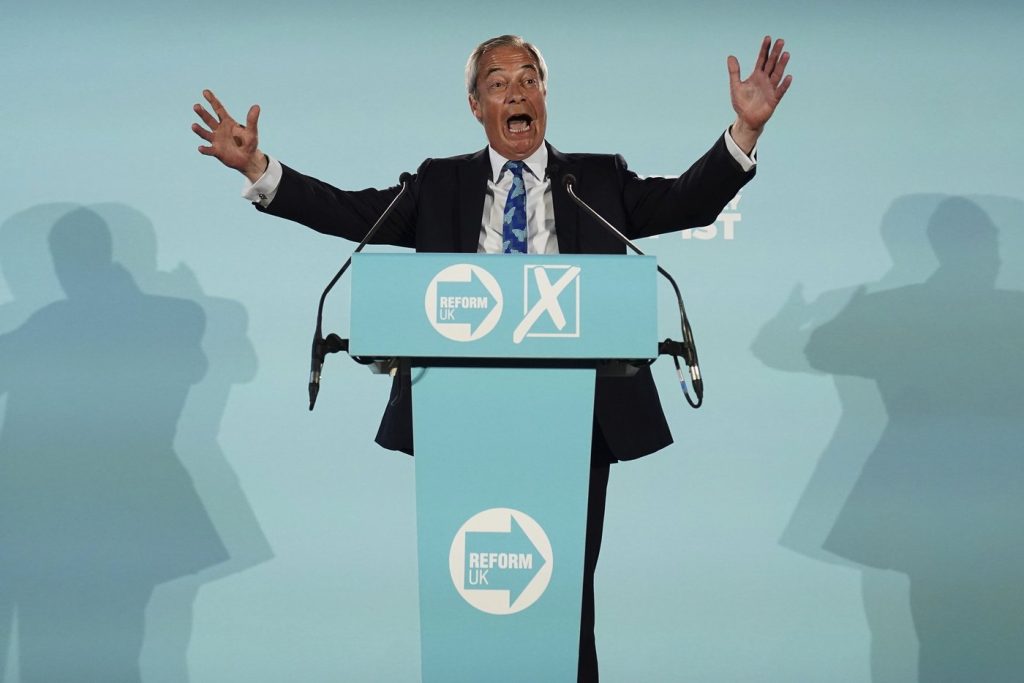LONDON (AP) — Voters across various regions of England are heading to the polls on Thursday for local elections that will serve as a barometer of public sentiment toward Prime Minister Keir Starmer's center-left Labour government. This election comes 10 months after Labour's significant victory in the national elections.
Both the Labour Party and the main opposition, the Conservative Party, are preparing for potential losses in this midterm poll. The hard-right Reform UK party, led by Nigel Farage, is fielding more candidates than any other party and aims to make substantial gains in the elections for approximately 1,600 seats across 23 local councils, six mayoral positions, and one seat in Parliament.
In the recent national election, Reform UK garnered around 14% of the vote but currently holds only four out of the 650 seats in the House of Commons. However, recent polls indicate that Reform UK’s support may now equal or even exceed that of both Labour and the Conservatives. The party hopes to potentially replace the Conservatives as the dominant right-wing party before the next general election, which is expected to take place by 2029.
At a rally on Wednesday evening, Farage expressed confidence, stating, "Tomorrow is the day that two-party politics in England dies for good." As polling stations remain open until 10 p.m. (2100 GMT, 5 p.m. EDT), the majority of election results are anticipated to be announced on Friday.
Reform UK is targeting hundreds of municipal seats, primarily aiming to take them from the Conservatives. Kemi Badenoch, the leader of the Conservative Party, has acknowledged that the results might be "very difficult" for the Tories. The Conservatives performed exceptionally well in these areas during the last elections in 2021, driven by the popularity of then-Prime Minister Boris Johnson's government, which had benefited from a successful COVID-19 vaccination program.
In addition to municipal councils, Reform UK is also vying for two or three mayoral contests, as well as a special parliamentary election for the Runcorn and Helsby seat in northwest England. This constituency, formerly a stronghold for Labour, became vacant after the resignation of Mike Amesbury, who left his post following a conviction for assaulting a constituent in a drunken incident.
Tim Bale, a professor of politics at Queen Mary University of London, noted that the Conservative Party and Reform UK are engaged in a "fight for the soul of the right wing of U.K. politics." He emphasized that Farage's "populist radical right insurgency" poses a potential threat to Labour, as it seeks to attract working-class voters through appealing promises to limit immigration, create job opportunities, and reduce government spending.
The centrist Liberal Democrats are also looking to expand their influence by attracting more affluent, socially liberal voters who have drifted away from the Conservatives. Bale cautioned that achieving municipal power could present a double-edged sword for Reform UK, as it would create expectations to address everyday issues such as transportation, road maintenance, housing, and other local concerns.
He remarked, "Populist parties tend to offer fairly simple solutions to fairly complex problems. Which is fine when you’re in opposition and all you are doing is living in a house of words. But once you start living in a house of deeds, that is a completely different proposition."











